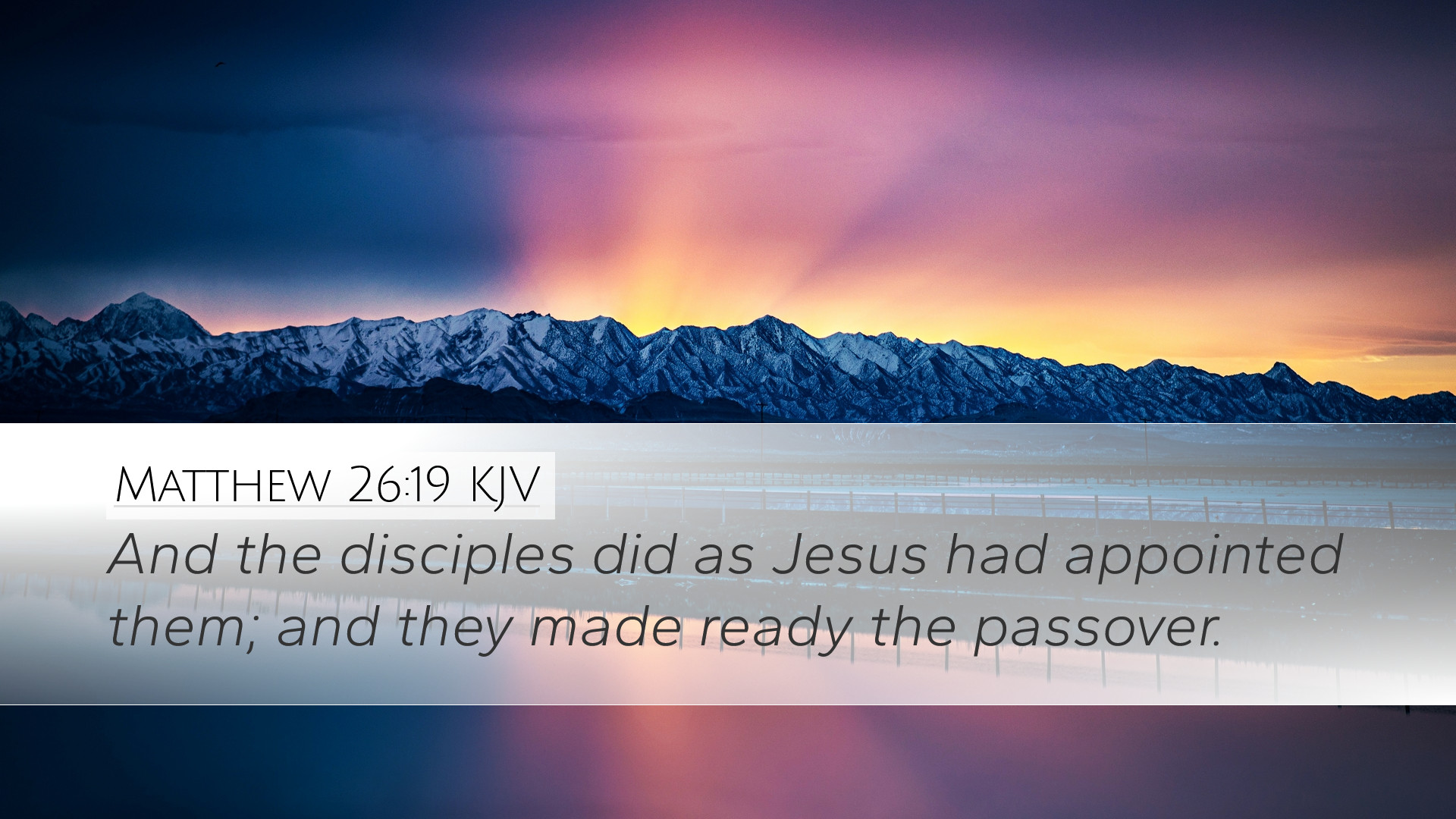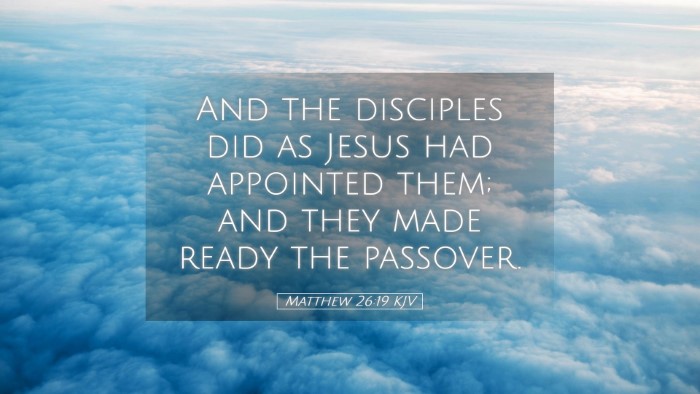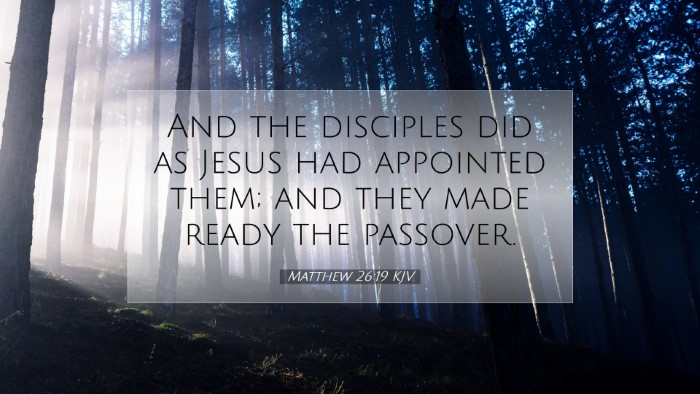Commentary on Matthew 26:19
Verse Context: "And the disciples did as Jesus had appointed them; and they made ready the passover."
Introduction
This verse marks a significant moment in the ministry of Jesus as He prepares for the Last Supper, symbolizing the institution of the Eucharist and the fulfillment of Old Testament prophecy. Within this brief statement, there is a rich tapestry of theological implications and practical applications that warrants exploration.
The Obedience of the Disciples
The phrase "the disciples did as Jesus had appointed them" speaks volumes about the character and disposition of the disciples. Their readiness to obey reflects both their trust in Jesus and their understanding of His authority. Matthew Henry notes that the disciples demonstrated immediate compliance, which showcases a principle of following divine instruction without hesitation or question.
-
Trust in Leadership: The disciples' actions serve as an example of trust in leadership. As leaders in the church, it is crucial for pastors and theologians to embody the principles of trust and obedience as demonstrated by the apostles.
-
Preparation for Worship: The preparations for Passover highlight the importance of being ready for worship and significant religious observances. Adam Clarke emphasizes that the physical act of preparation should reflect a spiritual readiness in the heart of the believer.
The Significance of Passover
The Passover meal holds great significance in the Jewish tradition, representing both remembrance and anticipation. Albert Barnes draws attention to the deep historical roots of the Passover, connecting it to the themes of liberation and divine covenant. This meal marks the climax of the Old Covenant and points towards the establishment of the New Covenant through Christ.
Jesus’ Appointment
The specific instructions given by Jesus indicate His foreknowledge and sovereignty over the events that were to unfold. The manner in which Jesus orchestrates this meal reveals His intentionality in fulfilling Scripture and enacting the plan of salvation. Clarke points out that each instruction carries profound theological weight, as it not only prepares the setting for the Last Supper but also illustrates the transition from the old system of sacrifices to the ultimate sacrifice of Christ Himself.
Theological Implications
This verse encapsulates a significant moment of transition within the biblical narrative. The passover established the understanding of atonement that is woven throughout both Testaments. Henry emphasizes that Christians are called to partake in the New Covenant established by Christ during this meal, which serves as a divine connection between the past and present.
-
New Covenant: The Last Supper sets the stage for the New Covenant that Jesus will offer through His death, a fulfillment of the prophecies and promises made to Israel.
-
Unity in Christ: The gathering of disciples for the Passover signifies unity and fellowship within the Body of Christ, a theme that resonates throughout the New Testament.
Practical Applications
Contemporary believers are called to reflect upon the obedience demonstrated by the disciples. The act of following Christ’s directives, as they did, is essential for spiritual growth and the pursuit of holiness. Barnes encourages Christians to approach the preparation of their hearts for communion with the same seriousness as the disciples did for the Passover.
-
Personal Preparation: Believers should engage in self-examination and prayer as they prepare for acts of worship, ensuring that their hearts are aligned with God's will.
-
Community Engagement: The act of gathering as a community, much like the disciples, fosters fellowship and accountability, strengthening the church as a whole.
Conclusion
Matthew 26:19 encapsulates a moment of profound significance as Jesus prepares for the Last Supper. The intimate act of preparation by the disciples serves as a model for obedience, reverence, and communal worship. Through the lens of public domain commentaries, we see a multifaceted understanding of this verse that encourages deeper reflection and engagement with both the text and the Christian faith.


